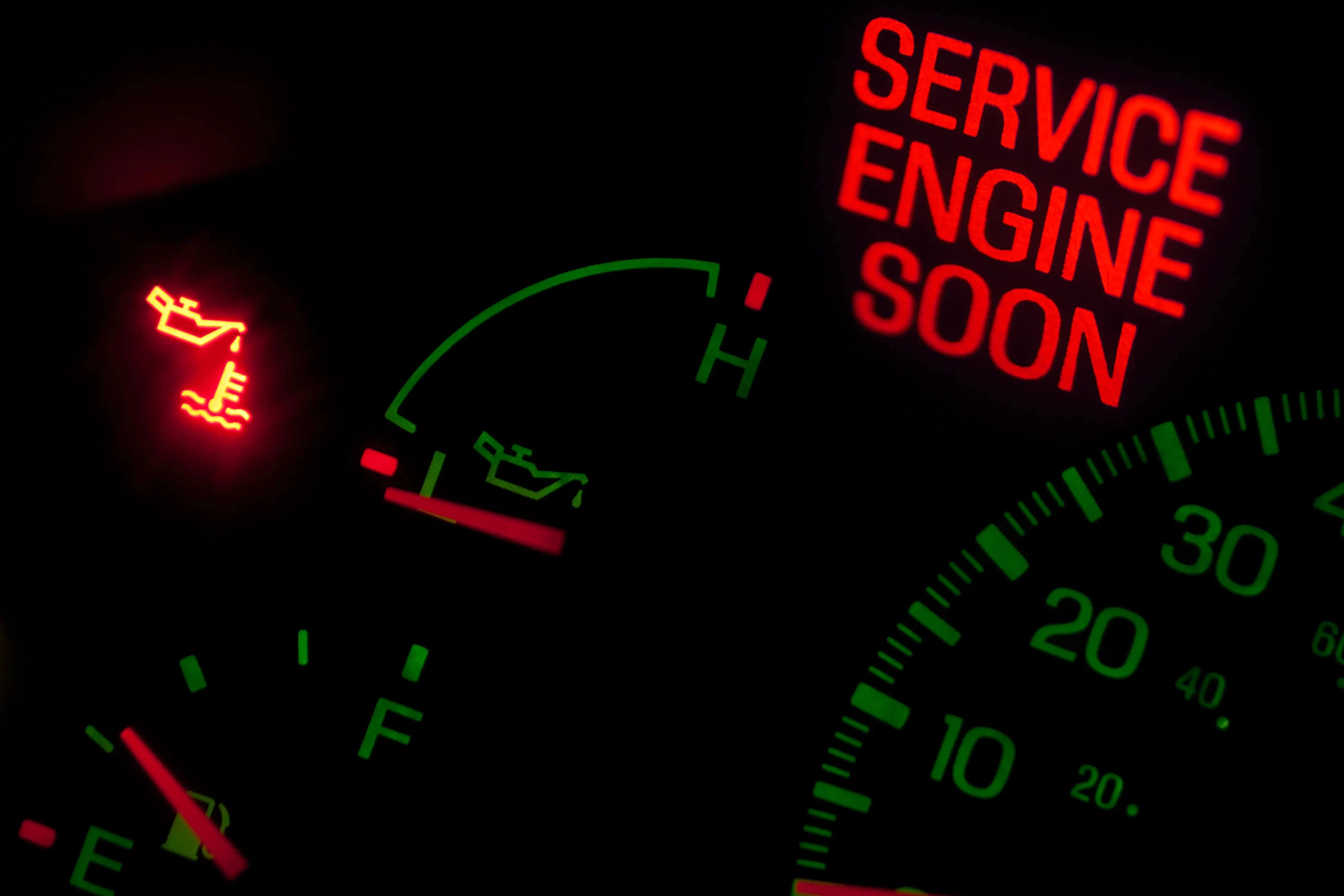Question: Why is my engine oil temperature high?
Answer: High engine oil temperature can be caused by various factors including low oil levels, clogged oil filters, old or poor-quality oil, a faulty oil pump, heavy engine load, or an inadequate cooling system.
6 Common causes of high engine oil temperature
With so many factors affecting your vehicle’s oil temperature, it’s important to consider them all before attempting to diagnose what’s making your oil temp high.
Low oil levels
When the oil level is low, there isn’t enough lubricant to adequately reduce friction between moving parts. This increased friction leads to higher operating temperatures.
Regularly checking and maintaining proper oil levels is essential for keeping your engine cool and running efficiently.
Clogged oil filters
Oil filters are designed to remove contaminants from the engine oil, ensuring smooth operation. Over time, these filters can become clogged, restricting oil flow and causing the engine to overheat.
Regularly replacing oil filters during oil changes can prevent this issue and help maintain optimal oil temperature.
Old or poor-quality oil
Using old or poor-quality oil can lead to high engine oil temperatures. Over time, engine oil degrades and loses its effectiveness as a lubricant.
Additionally, using oil that doesn’t meet the manufacturer’s specifications can result in inadequate protection and higher temperatures.
Regular oil changes with high-quality oil are crucial for engine health.
Faulty oil pump
The oil pump is responsible for circulating oil throughout the engine. If the oil pump fails, oil flow can be restricted, leading to higher temperatures and potential engine damage.
Recognizing the symptoms of a failing oil pump, such as unusual noises or low oil pressure warnings, and addressing them promptly can prevent overheating.
Heavy engine load
Driving under heavy engine loads, such as towing or climbing steep hills, can cause the engine to work harder and generate more heat. This extra strain on the engine increases the oil temperature.
Being mindful of driving conditions and avoiding excessive loads when possible can help manage engine temperatures.
Inadequate cooling system
The engine’s cooling system plays a vital role in regulating oil temperature. If components like the radiator, water pump, or cooling fans are not functioning correctly, the engine may overheat.
Regular maintenance of the cooling system, including checking coolant levels and ensuring proper function of all components, is essential.
Why does my engine oil temperature matter?
Maintaining proper engine oil temperature is vital for several reasons:
- It ensures the oil retains its viscosity and lubricating properties, which are essential for reducing friction between moving parts. Increased friction can lead to increased wear and engine damage.
- Excessive oil temperatures can lead to the formation of sludge and deposits within the engine. In severe cases, high oil temperatures can cause the oil to oxidize and break down, losing its effectiveness altogether.
- An engine running with overheated oil may suffer from reduced performance and increased emissions.
Proper oil temperature management also contributes to overall engine efficiency. When the oil operates within its ideal temperature range, the engine can perform optimally, leading to better fuel efficiency and lower emissions.

Sarah Gray is an insurance writer with nearly a decade of experience in publishing and writing. Sarah specializes in writing articles that educate car owners and buyers on the full scope of car ownership—from shopping for and buying a new car to scrapping one that’s breathed its last and everything in between. Sarah has authored over 1,500 articles for Jerry on topics ranging from first-time buyer programs to how to get a salvage title for a totaled car. Prior to Jerry, Sarah was a full-time professor of English literature and composition with multiple academic writing publications.

Kevin Berry is the Senior Director of Content at Jerry and has been working in the digital content space since 2011 across the car insurance/repair, personal finance, travel and sports industries. Prior to Jerry, Kevin was a content team lead at NerdWallet overseeing the Multimedia Production and Travel Rewards teams. Previously, he worked for NBC Sports, Comcast Cable and Nike. He has a Master`s Degree from Arkansas State and a Bachelor`s from Oregon State University.








